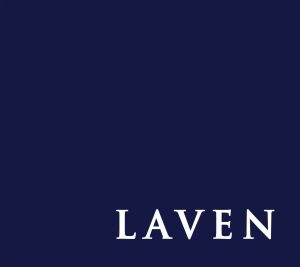Platinum Partners
In this newsletter we look at a second notable fund blow-up in 2016, Platinum Partners; its causes and whether a sound due diligence process would have raised enough weaknesses to deter a potential investor.
Founded in 2003, Platinum reported 17% annualised returns in its flagship energy fund, Platinum Partners Value Arbitrage Fund (“PPVA”). As a result, the firm earned $91m in management and incentive fees from PPVA alone between 2012 and 2014.
In December 2016, Mark Nordlicht, founder and CIO of the New York-based firm, along with 6 others, was arrested and charged in a $1bn investment fraud.
The case raised a number of claims against Mr. Nordlicht and members of the senior management of Platinum. It claims that illiquid assets were overvalued to boost performance results, redemptions were paid out from incoming subscriptions, and high-interest loans from the more liquid Platinum Credit Opportunities Fund (“PPCO”) were given to PPVA to mask liquidity problems that PPVA had faced since 2012. This allegedly led to an ad hoc redemption strategy that favoured some investors over others. The case also claims that PPVA was pitched to investors as a liquid fund despite its largest asset, energy firm Black Elk Energy, facing significant liquidity challenges. Finally, it was alleged that Platinum executives misappropriated cash via a fraudulent Black Elk bond scheme.
What might a due diligence examination have found?
- Overvaluation
According to reports, PPVA’s illiquid assets, which were mainly energy-related investments hit by the decline in oil prices, were overvalued by Platinum.
As part of a sound due diligence approach, an assessment of valuation policies and procedures should be performed to ensure that practices are aligned with best practice standards and undergo sufficient independent scrutiny. Questions should be raised directly with any external fund administrator with regard to valuation sources and practices and corroborated with other information. In the case of illiquid assets, additional procedures are recommended to ensure that valuations are not solely the decision of the manager or other conflicted parties. We would have expected Platinum to have established an independent valuation committee answerable to the board of directors, and to have engaged independent valuation specialists. We would also expect significant audit and board input on the level III (ASC 820 Standard) assets.
- Redemption strategy
Platinum was charged with concealing a growing liquidity crisis in PPVA, prompted by the material size of illiquid investments and net redemptions it faced on a quarterly basis, by transferring money between funds and arranging preferential redemptions for some investors. Platinum also amended the liquidity terms of PPVA from quarterly to bi-annually in early 2015.
During the due diligence, a review of the redemption terms in the offering documents, including any lock-up periods and gate provisions, should be performed. Such an assessment should consider the underlying assets and their liquidity and make a determination as to the appropriateness of the terms. The review of liquidity terms must also be considered from a governance perspective. Who are the decision-makers for enacting gates or side pockets, for example, and is this at the discretion of the manager or perhaps the fund’s board with a majority of independent members who represent investors’ interests. In the case of Platinum, such a review would have uncovered the changing liquidity terms (which should raise immediate questions), side pockets and whether any investors had redemption requests denied or gated.
Further, any transfers/loans between funds should be disclosed in the Audited Financial Statements under related party transactions which should also be reviewed as part of the due diligence process.
- Fraudulent pitch
PPVA continued to be promoted to investors as a liquid fund, yet the majority of its assets (all highly illiquid) were side pocketed and according to the SEC, PPVA was reliant on new subscriptions to make good on redemption requests.
A sound due diligence process would look for and consider any disproportionate concentration of investments in a particular sector, geographic market or a particular asset class. This can be identified by comparing reporting and financial statements with the investment policy and investment set out in the offering documents. Further, the existence of side pockets could raise a concern and needs to be carefully investigated. These reviews should coincide with an assessment of historical subscription and redemption volumes.
- Misappropriation of funds
In 2014, Black Elk Energy, in which Platinum held up to USD 186 million in preferred shares, successfully divested its main assets to another company to stave off insolvency. Proceeds of USD 100 million from the asset sale were paid out to PPVA and its affiliates, who also held preferred shares, ahead of priority bondholders, through a rigged bond vote. By manipulating the market using leaked company information, Platinum was able to purchase up to 66% of the bonds at a discount. To avoid having to disclose the majority ownership, Platinum then moved all but 12% of the bonds into other Platinum controlled investment funds and thereby had the power to influence the vote in favour of paying out to the preferred shareholders, themselves. Nordlicht had also been involved in multiple scandals. He was accused of helping a rogue trader in 2007, costing the Bank of Montreal more than $500 million, and in 2011, a Florida lawyer who confessed running a $1.2bn Ponzi scheme testified that Nordlicht attracted new investors under false pretences.
Whilst difficult to catch well organised fraud such as the Black Elk bond vote, background searches can play a key role as part of the due diligence process. Identifying key employees and obtaining a full biography, reviewing past experience and performing criminal, regulatory and general web-checks will provide information as to fitness and propriety of the individual. A strong due diligence process would also focus on the overall compliance framework, including whether there is an experienced and independent head of compliance with sufficient authority. Any issues arising from background searches or a weak compliance framework would likely raise a red flag for investors.
- The board of directors
Platinum made use of professional offshore directors. Independent directors should provide investors with comfort that their interests are looked after and that the manager’s actions are under independent scrutiny. Although professional fund directors can bring valuable experience and expertise to boards, equally, some can sit on hundreds of fund boards. In such cases, one would question the directors’ ability to fulfil their duties to each and every board they service and ultimately the investors.
A due diligence review of corporate governance should perform an assessment of the directors and their ability and commitment to the board. This can, as an example, include a review of the directors’ backgrounds and current engagements.
A review of just the few examples above shows that a number of weaknesses should have been uncovered during a due diligence process. With the benefit of hindsight, Laven Partners believes that even if the due diligence process would not have uncovered a complete show-stopper (though this depends on each investor’s risk appetite), enough concerns and red flags would have been raised to inform a prospective investor regarding the manager’s operational excellence – or rather the lack of it. The combination of the adverse background checks, the changing liquidity terms and asset liquidity would have been more than enough to form a holistic view that an investment with Platinum would be subject to some serious concerns.
Find out more about our Due Diligence services here.




